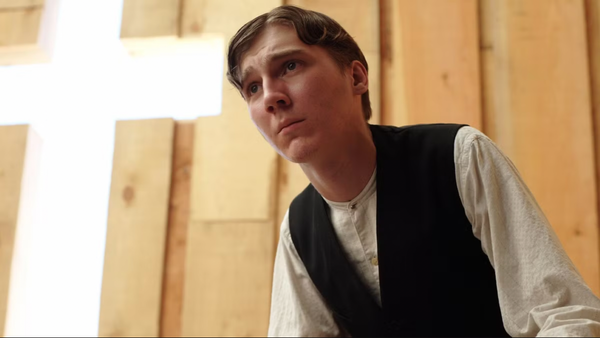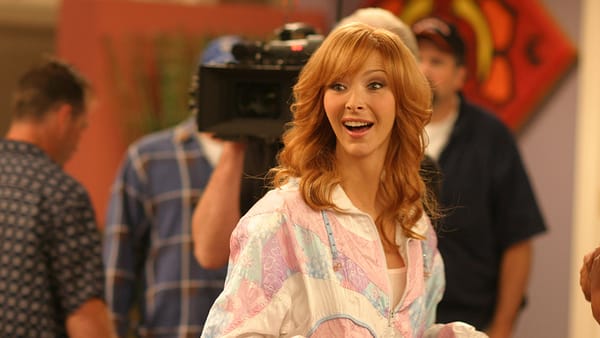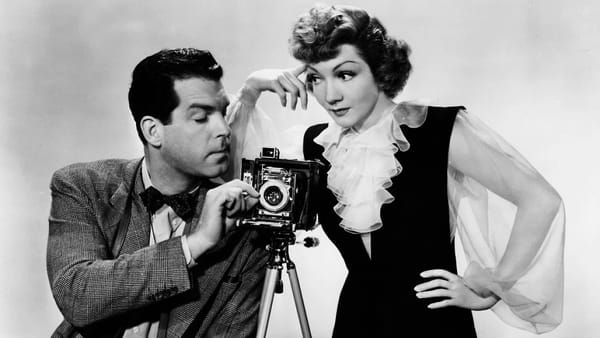Psycho. #59
Sorrenti-maybe?
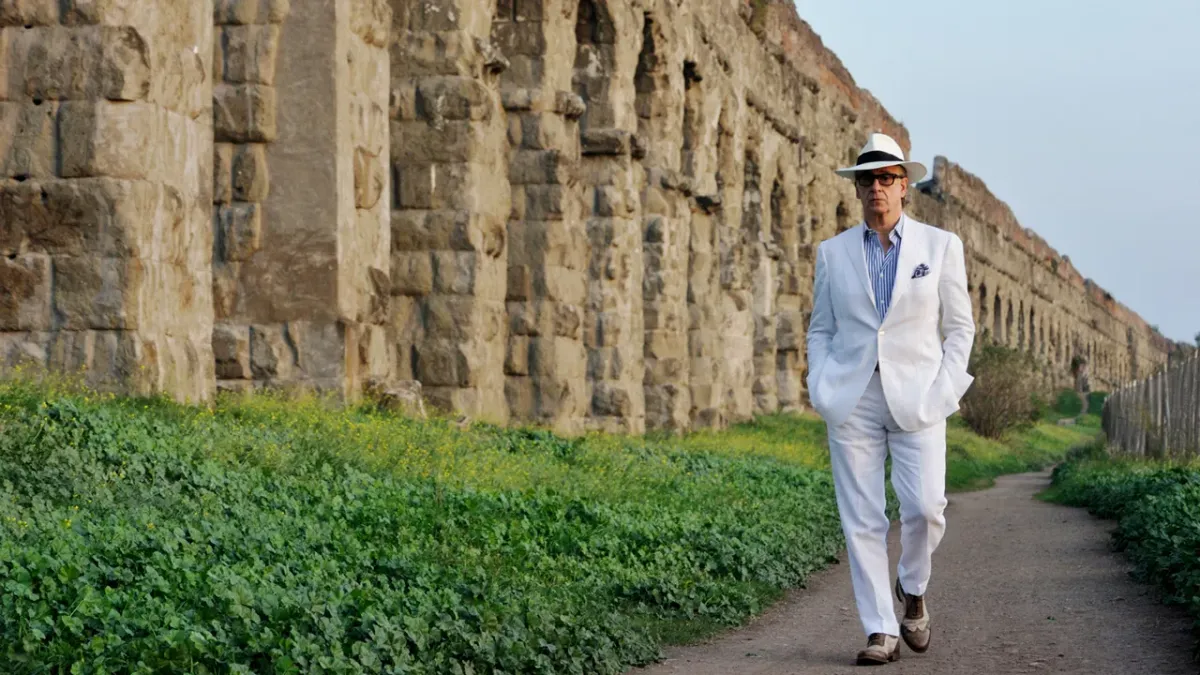

Hi Caspar, I recently watched Parthenope, and enjoyed it much more than I expected, given the tepid reviews and having found The Hand of God a bit of a slog. As the film cycled through Sorrentino's thematic greatest hits – youth/beauty/the sacred/the profane etc. – I did wonder: is there any there, there? Could someone be a hack and a genius at the same time? I rolled my eyes when Parthenope was, seemingly inevitably, seduced by a sleazy bishop – or was it the other way round? – but damn if that scene wasn't amazing; I nearly lost my mind when Wojciech Kilar's “Exodus” dropped on the soundtrack. The scene seems to call attention to its own ridiculousness ("I look like a reliquary") while being totally committed at the same time. Help me to understand: what's the deal with Sorrentino?
Is there any there, there? That’s the main question, I think – but you also ask, “Could someone be a hack and a genius at the same time?”, which I think is a different question, or perhaps a question of another order. I think that ultimately Sorrentino is a hack, and there isn’t much at all of substance in his films, but I do know what you mean about him: that sometimes, it seems that something seems to catch alight; a scene just works somehow, and God only knows to what extent that is intentional.
I think I need to circle back to my first encounter with Sorrentino, when, I’m afraid, I found myself dazzled by him. I was in Cannes for the second time, in 2013, and starting to get the hang of it – and yet, I was still so early in my career as a critic that I was, I think, quite wide-eyed about everything. I had some critical faculties, but I don’t think I had quite worked out how to synthesise them into a coherent ethos. Things amazed me and shook me, or sickened or attracted me, and I was perhaps more of an easy mark than now. It was in this spirit that I went into The Great Beauty (2013), whose self-conscious grandiloquence wowed me: I was stunned by the heightened, frenetic style of this overtly “big” film, whose influences were proudly displayed for all to see. There was so much to look at: wild creatures roaming, a crawling nun and a tacky rooftop choreo; a long and beautiful nighttime walk through Rome (during which a man lectures a beautiful woman who appears to be a simpleton). The film’s peacocking got me, and I found myself being more indulgent than I would ordinarily be towards its excesses and its crassness, its casual misogyny and cribbed ideas. I saw a lament for a lost Italy writ large, and didn’t stop to analyse whether there was much else going on in the film’s 2.5 hour runtime. Or rather, I didn’t question the ways in which that lament was carried out – how rigorous or critical it was; in what ways it problematised its ideas and carried them out in filmic terms, etc.
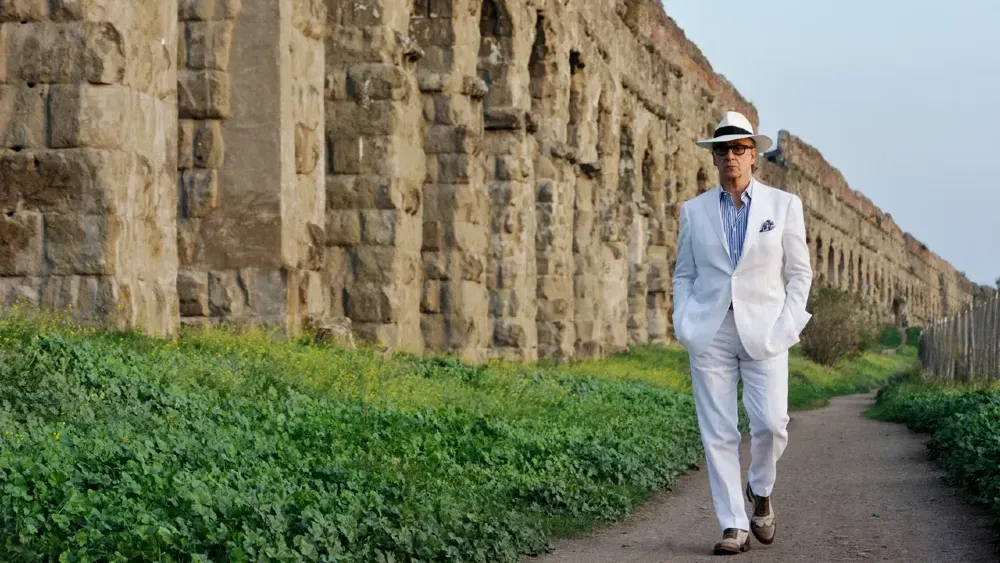
Of course, a central question of modern Italy is to do with its place in the world, its relationship to its own extensive history and culture. Most current Italian film directors reckon with that question, and do so in different modes: Alice Rohrwacher in a folkloric and dreamy way, refracted through magical realism and a kind of naïve storytelling style. Witness Josh O’Connor, an interloper, chancing upon treasures of Italy’s yesteryear in La chimera (2023), and chipping the nose off a statue. Italy’s past is plundered for profit; its beauties are an underworld of grace beneath a deserted and insalubrious landscape. In Martin Eden (2019), Pietro Marcello places his period drama in a weirdly indistinct time: the action is pre-war, but interspersed with archival documentary footage from much later in the 20th century, and the style of the film is modern in its idiom. Marcello seems to be collapsing time in order to present a certain image of Italy, perhaps to describe the way it has not shifted in some of its codes and conventions.
Nanni Moretti addresses the same themes of history, politics and cultural decline – the fall of the Roman Empire, as it were – in his films ranging from the 1990s through to, let’s say, Mia Madre (2015). It’s there in bitterly ironic scenes in Dear Diary (1993), where the protagonist and his friend climb Stromboli and discuss scenes from The Bold and the Beautiful, barely paying attention to the landscape around them. It’s there in The Son’s Room (2001), where Moretti’s character breaks his crockery, saying that it was all already fissured and broken anyway. And it’s there in moving scenes in Mia Madre where the central family struggle to recollect their Latin. In Aprile (1998), Moretti berates a character who abandoned the wonders of Rome for the boring comfort of its suburbs in the 1970s. And he returns, again and again, to Berlusconi, the man who sold his country out to television. There is, here, a rigorous strain of Marxist critique, painting a picture of a country bent under the weight of its history, and turning towards shallow reality TV and post-truth news and propaganda.
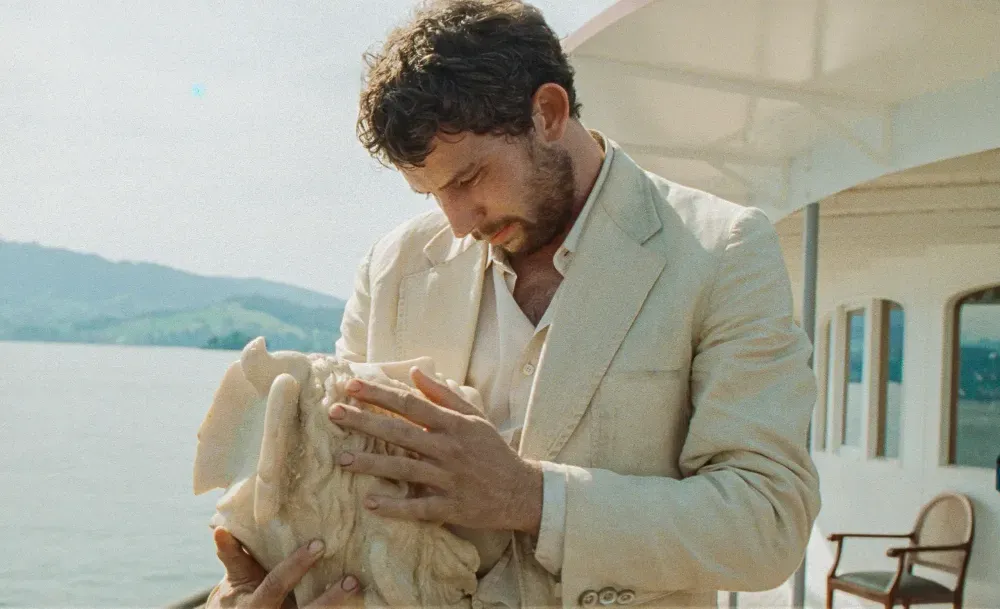
I mention all this because Sorrentino treads some of this territory – but his methods are suspect and don’t hold up to much scrutiny. In The Great Beauty, he speaks of the changes in Rome, its metamorphosis into a party town; he too bemoans a certain superficiality in modern life, born of a Berlusconisation of Italian culture. But The Great Beauty is not dialectical in its engagement with these ideas: it doesn’t really consider language, it doesn’t present a new mode of analysis; it simply observes and shakes its head. Meanwhile, Sorrentino’s casual sexism is wholly of a piece with the forces he purports to critique, which damages his film intellectually. There just is not a substantive reckoning here: instead, The Great Beauty is a show.
And yet. As you intimate, does something somehow work in his cinema? Loro (2018), Sorrentino’s “Berlusconi film”, is far too direct in its aim, where it would be better to look at that scourge of Italian politics and culture from an angle. Moretti’s Berlusconi film – The Caiman (2006) – is not a complete success, being ultimately undone by the size of its subject; but it arrives at Berlusconi from a tangent, showing the phenomenon more than the man, before presenting the person in scenes that feel suitably angry and charged. Loro is too dopey, too stodgy – and yet! And yet, as I keep saying: something works, here, because Sorrentino’s visual language, in being so front-on, is at times appropriate for talking about this disgusting mafia-boss politician with a tan like a mahogany cupboard, who treated politics like showbiz and was known for bunga-bunga parties. It’s actually kind of right for a film like this to use “The Ketchup Song”, by Las Ketchup! That’s the kind of level we’re dealing with, here!
(Side note: Nadav Lapid’s blistering Yes (2025), a devastating satire of Israel that also toys with heightened vulgarity in its visual mode (and an infinitely better film than Loro) also makes giddy use of “The Ketchup Song”. But Yes is extremely discursive and wide-ranging in its methodology, meaning that this musical interlude is just one string to its bow.)
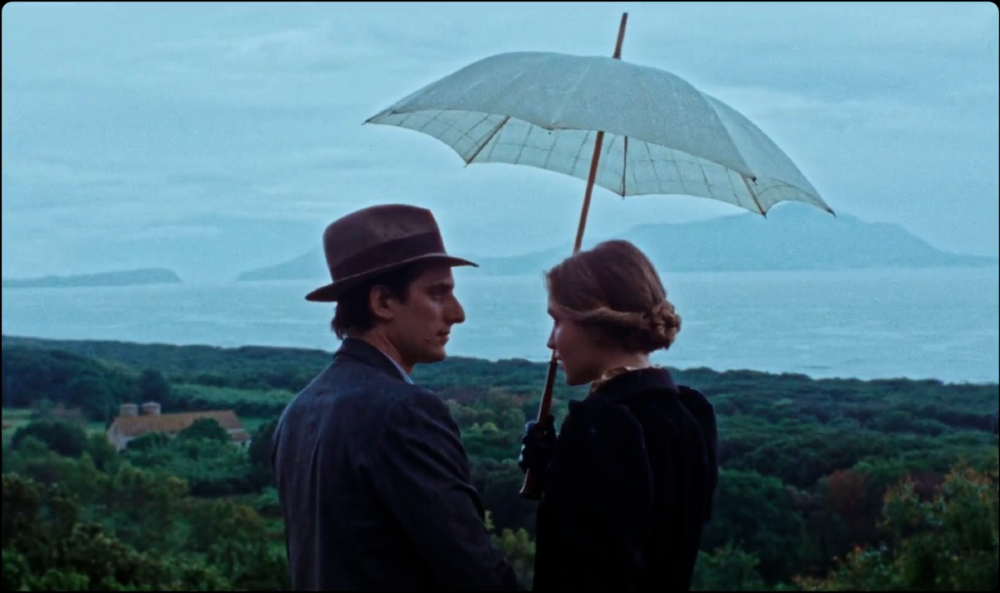
Loro is not a great film, but there are moments that make a kind of sense, where you feel things falling into place. I think of it in the same way as I think of The Wolf of Wall Street (2013) – a film that is overstuffed, and far too indulgent in the way it presents the hideous criminals at its centre and in the way it gives Jordan Belfort a role. I really disagree with the terms of Scorsese’s film, and yet, in some ways, at times, that modus operandi is right for what it depicts; it’s apt for the film to be kind of gross and hamstrung, bloated, deeply compromised. So it is that something in Sorrentino gets Berlusconi.
I should add another key element that so often saves Sorrentino from outright vulgarity: the grace and depth of his frequent main guy, Toni Servillo. I don’t think Sorrentino deserves him.
It may not be a coincidence that Servillo doesn’t feature in Youth (2015), an outright failure that has, I think, nothing at all to say about anything. Here, Sorrentino creates tableaux; there are some beautiful women?, Harvey Keitel is there, and Rachel Weisz gives a career-worst performance. There is a simply hideous dream sequence. That’s all I have for you on Youth I’m afraid – and that brings to a close the list of Sorrentino films I’ve seen. I didn’t catch The Hand of God or Parthenope at a film festival, and I wouldn’t pay money of my own to see them. Good on you for persevering!
I don’t think a hack can be a genius, but genius may fitfully spark and be caught by anyone: it is, in my view, a capturing of the idea of perfection. You can find it in a Beach Boys song or an Alan Hollinghurst sentence; whole films and books and paintings are drenched in it, because the artist was able to work over an idea in so completely subjugating a way as to attain the sublime. Sorrentino is not that artist, at least not on the evidence I’ve seen; but all you need to do to catch a snowflake is extend your hand: leave it to the world around us to provide.
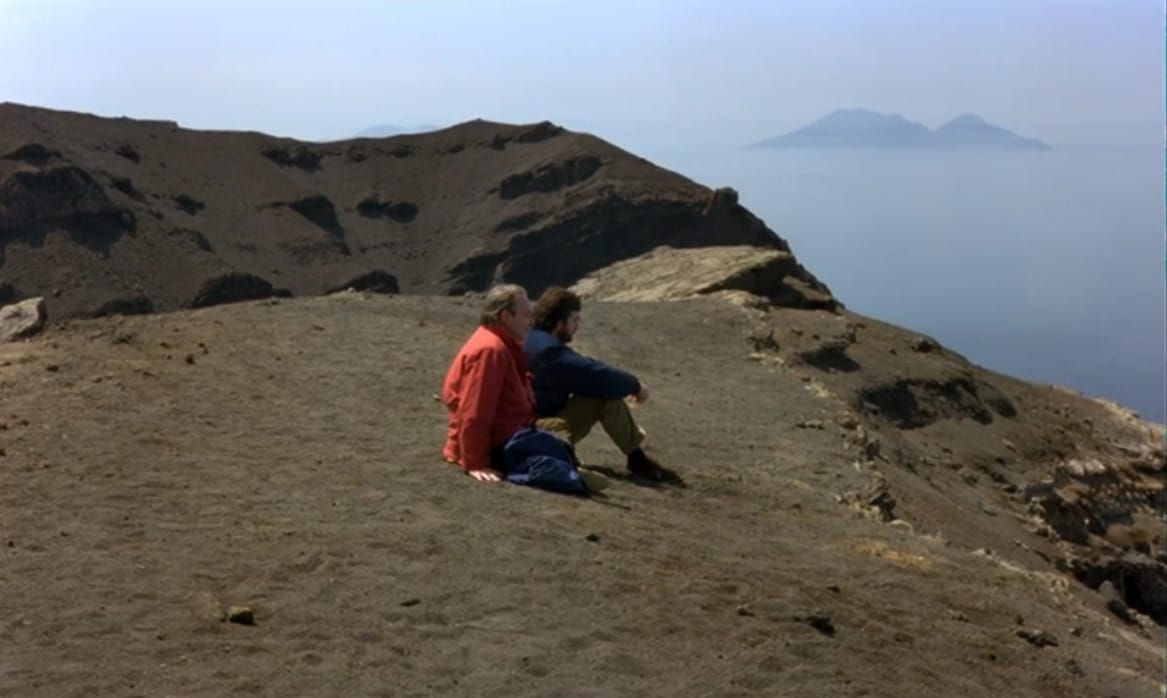
Send your questions anonymously to Caspar at this link, no personal information is collected.

